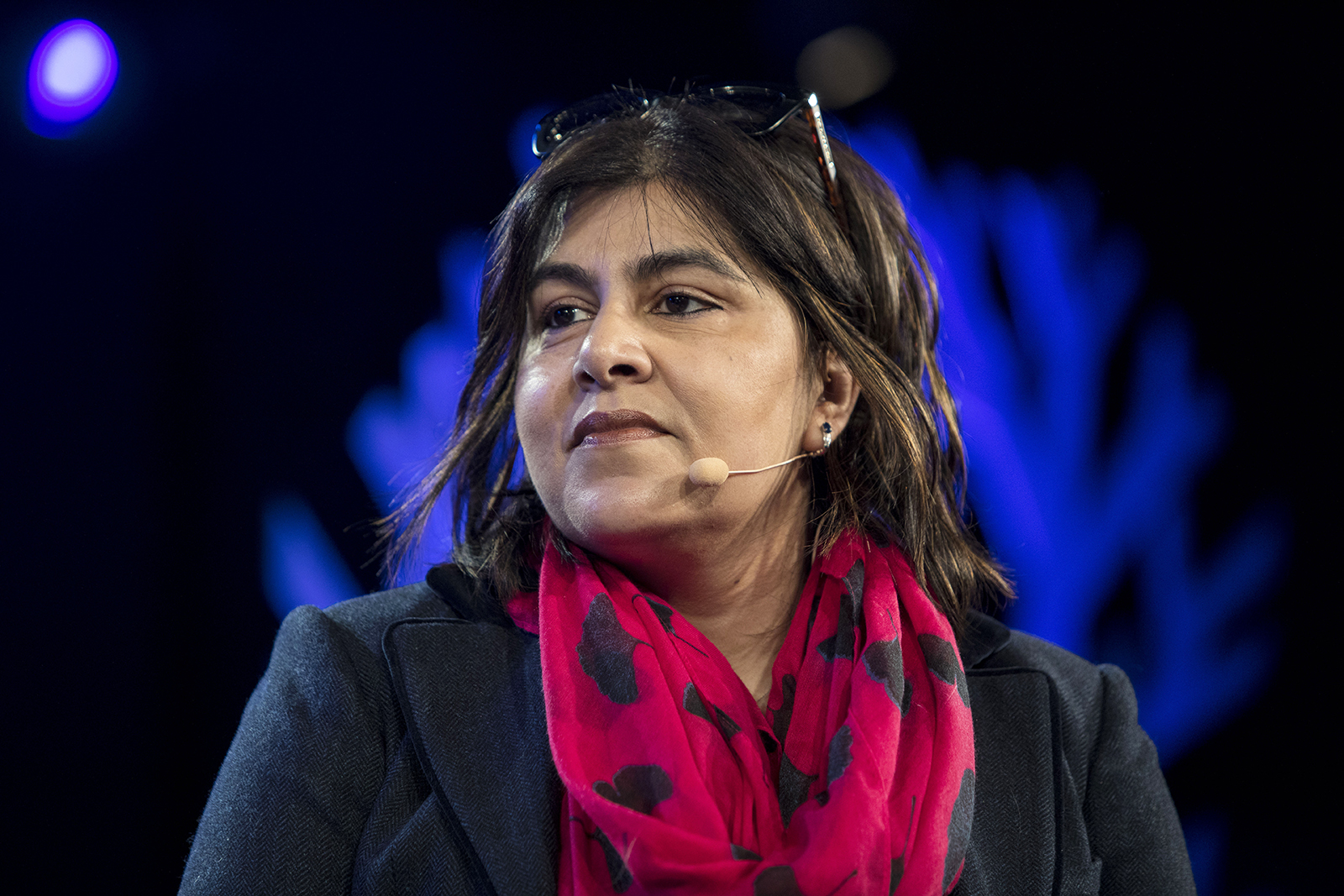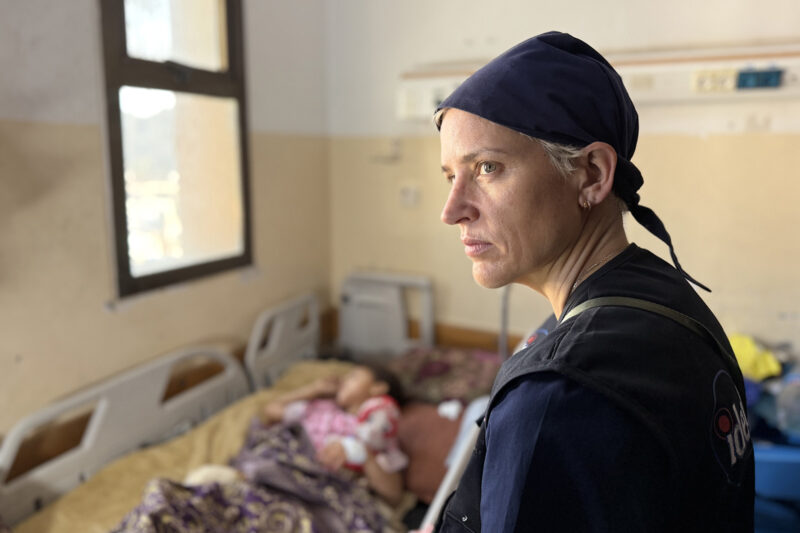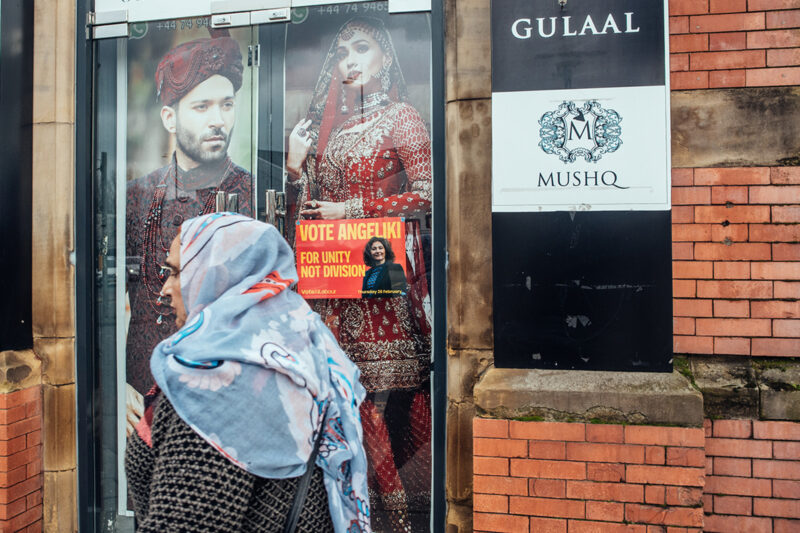Speaking out on racism, multiculturalism and Gaza — the Hyphen guide to Sayeeda Warsi
Baroness Warsi, the first Muslim woman in cabinet, has now resigned the Tory whip. Here are the moments that have defined her career so far

Conservative heavyweight Sayeeda Warsi, the first Muslim woman to serve as a cabinet minister, has resigned the party whip after stating that the Tories have moved too far to the right.
In a post shared on X, Baroness Warsi, who was made a life peer in 2007 by then leader of the opposition David Cameron, said: “My decision is a reflection of how far right my party has moved and the hypocrisy and double standards in its treatment of different communities.”
Warsi’s political career has spanned more than two decades. In 2005, she left her job as a solicitor to stand as a Conservative MP for Dewsbury, making her the party’s first female Muslim candidate.
Though she was unsuccessful, she made a significant impact. In 2007, David Cameron appointed her to the House of Lords and she became vice-chair of the party.
In 2010, she served in Cameron’s cabinet as minister without portfolio and, in 2012, she was made faith minister and a senior minister at what was then the Foreign and Commonwealth Office (FCO). Warsi resigned from both positions in 2014 over the Conservative party’s stance on Israel and Palestine, claiming it was “morally indefensible”.
This is Hyphen’s guide to the key moments that shaped Warsi’s career.
Growing up in a multicultural Britain
Warsi, the daughter of Pakistani immigrants, grew up in the Savile Town suburb of Dewsbury, West Yorkshire.
In her 2017 book, The Enemy Within — A Tale of Muslim Britain, she recalls the diversity and plurality of her hometown and her desire to belong.
“As a child I needed to belong, to fit in, to be a part of the world and experiences of my friends and neighbours,” she writes. “I wanted to belong in all the different parts that made up the sum of my world: the Pakistani bit, the Savile Town bit, the English bit, the Asian bit, the western bit, the female bit and the many versions of Islam bit.”
Speaking to Mail Online in 2012, Warsi called for British people of all faiths and ethnicities to join each other’s celebrations, saying she had grown up celebrating Christmas: “We introduced turkey, crackers, hats, a tree and tinsel. It became more and more Christmassy every year.”
A start in politics
In an interview with the Big Issue, Warsi said that she first became involved in politics as a student, and was “definitely on the left”.
“I come from a strong Labour family,” she said. “I remember fighting for grants not loans. And against the Poll Tax. When I got into my 20s, I started thinking more about domestic politics and it became pretty obvious the things I believed in made me centre-right. Low-tax economy, smaller state, civil liberties, opportunity, all of that.”
She added: “I didn’t actually join any party until my late 20s because I felt the issues far outweighed party politics. But I think if you want to be involved in frontline politics it has to be done through a party.”
The successful release of Gillian Gibbons
In 2007, Warsi helped secure the release of Gillian Gibbons, a British schoolteacher who had been jailed in Sudan for blasphemy after she allowed a class of young children to name a teddy bear Muhammad. She gained praise from party leader David Cameron and Labour prime minister Gordon Brown, who said: “Through the course of Ms Gibbons’s detention I was glad to see Muslim groups across the UK express strong support for her case. I applaud the particular efforts of Lord Ahmed and Baroness Warsi in securing her freedom.“
Raising awareness of menopause
Warsi has been an outspoken advocate for women throughout her career. In The Enemy Within, Warsi writes: “The one identity that was stronger than all others for me as a child was being a girl. It underlay most of the discussions that we had at home and became the basis of most decisions made about my life. It shaped my upbringing, my career, my personality, my drive and indeed the chip on my shoulder.”
In 2023, she contributed to Still Hot!, a collection of stories of 42 women’s experiences of menopause. “Probably the most difficult thing for me is what I call head fog, the inability to think quickly and clearly,” she wrote. “That ability was something I’d always taken for granted and I saw it as the basis for much of my success.
“I remember my daughter turning around to me one day and saying: ‘We need to find Baroness Warsi again.’ What she was effectively saying was that we needed to find that publicly strong, independent, kick-ass, out-there woman again. I did find Baroness Warsi again. The fog did clear.”
Resignation from office in 2014
Warsi resigned from her position as an FCO minister in August 2014 over the government’s policy over events in Gaza at the time. “Our approach and language during the current crisis in Gaza is morally indefensible,” she wrote.
At the time, chancellor George Osborne described her resignation as ”disappointing and frankly unnecessary”.
‘Toxic’ Prevent strategy
Warsi is a vocal critic of the counter-terrorism strategy Prevent, which she has condemned as targeting Muslims. In an interview with the Sunday Times in 2017, during Theresa May’s tenure as prime minister, she said: “I think Prevent, as a brand, is broken. I think it’s toxic. Prevent is targeted towards British Muslims and British Muslim kids.”
She added: “I think Theresa May needs to pause, she needs to reassess what Prevent is about, and they need to have clarity of whether it’s counterterrorism or counter-extremism.”
Islamophobia in society
In a speech at the Sternberg Lecture in 2011, Warsi warned that Islamophobia had become normalised in society. She said prejudice against Muslims had now “passed the dinner table test”. Warsi gave the example of an Independent column by Polly Toynbee, titled “I am an Islamophobe, and proud of it”, and a speech by writer Rod Liddle titled “Islamophobia? Count me in”.
“Islamophobia should be seen as totally abhorrent — just like homophobia or Judeophobia — because any phobia is by definition the opposite of a philosophy,” Warsi said.
Racism and Islamophobia within the Conservative party
In 2021, Warsi welcomed an independent review into the Tory party, which found it “insensitive to Muslim communities”. Writing on X, Warsi said she felt “vindicated” that there was “evidence of anti-Muslim sentiment at local association and individual level”.
Three years earlier, Warsi had criticised Boris Johnson for comparing fully veiled women to letterboxes in his column for The Telegraph, and accused him of “helping to create an environment in which hate crime is more likely”.
“As a feminist, what really disgusts me in this whole episode is that Muslim women are simply political fodder, their lives a convenient battleground on which to stake out a leadership bid,” Warsi wrote in the Guardian.
Warsi raised concern about Islamophobia within the party again in February 2024, after MP Lee Anderson lost the Tory whip over his remarks that Islamists had “got control” of London mayor Sadiq Khan. She urged then prime minister Rishi Sunak to break his silence over the controversy, telling the Guardian: “What is it about the prime minister that he can’t even call out anti-Muslim racism and anti-Muslim bigotry? Why can’t he just use those words?”
2024 resignation
Following Warsi’s resignation, a spokesperson for the Conservatives told the BBC that Warsi was informed earlier this week that she was due to be investigated by the party for using “divisive language”.
Writing on X, Warsi said a complaint had been made against her earlier this month after she publicly congratulated pro-Palestine protester Marieha Hussain, who was acquitted of a racially aggravated public order offence for carrying a placard depicting Rishi Sunak and Suella Braverman as “coconuts”.
Warsi has been criticised by fellow conservatives Richard Holden and leadership contender James Cleverly. “I’ve been called a coconut too many times to laugh it off,” Cleverly wrote on X. “It hasn’t held me back or brought me down, but a Conservative peer not recognising the abuse of other black colleagues is unacceptable.”
Responding to his post, Warsi claimed Cleverly had failed to act on “dozens of cases of racism and Islamophobia” that were referred to him during his time as the party’s chair in 2019 and 2020.
 Newsletter
Newsletter













